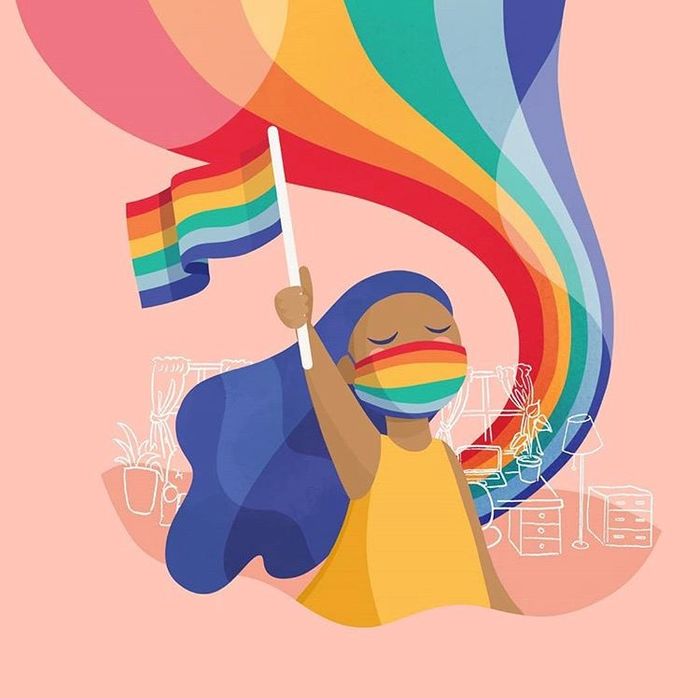SU introduces Care+ campaign to tackle ‘disproportionate’ harm to LGBT+ students
The campaign aims ‘to bring students and staff together to push for change’

Content Notice: This article contains discussion of institutional and personal issues faced by LGBT+ students.
The Cambridge Student Union (SU) has launched their new Care+ campaign today (01/02), which aims to improve support for LGBT+ students in Cambridge.
The campaign also responds to the effects of the pandemic for LGBT+ students, which has “only heightened pre-existing systematic problems,” according to the campaign’s press release.
Alongside the campaign, the Big LGBT+ Cambridge Survey report, and research by the lgbtq+@cam programme have both been released, coinciding with the beginning of LGBT+ History Month.
The campaign includes the Care+ guide, which outlines twelve “easy to take” actions that Colleges should take in order to best provide for LGBT+ students, which are based on research conducted by the SU LGBT+ Campaign.
Among these, the campaign calls on Colleges to identify LGBTQ+ representatives among students and staff, “preferably including a named Fellow”; to acknowledge the “disproportionate impacts” felt by LGBT+ students, “including where their own policies have led to these harms”; and to ensure that Tutors receive training to “sensitively” respond to the needs of students from a variety of backgrounds and identities.
The actions recommended by Care+ also refer specifically to accommodation issues, citing Easter Term 2020 and Lent Term 2021, when some LGBT students may be returning home to “places of intolerance or trauma.” The campaign also highlights that during Michaelmas Term 2020, the creation of households led students to “not have a say” in who they would live with, “people who...they did not necessarily trust or who would be explicitly prejudiced.”
The Care+ report also found that “Trans and Non-Binary (NB) respondents were slightly more likely to feel insecure in their living situation than average. We can confidently say they were also significantly more likely to feel unsafe.”
Subsequently, the campaign calls on colleges to allow students to “self-determine” their place of study, without “pressure” to disclose their reasoning, which may lead LGBT+ people to explain themselves to people who may be “biased or hostile towards them as LGBT+ people.”
The Care+ campaign is based on evidence from the Big LGBT+ Survey, which aimed to further understand the issues affecting LGBT+ students at the University.
Of the 389 respondents, 276 of which were undergraduate students, 37% reported that their experience of teaching on LGBT+ topics was positive, while 18% reported that their experience was negative overall. One STEM PhD student noted that there was “no LGBT network or community in the institute...thus I am not out to anyone in my lab.”
More broadly, 90% felt that their College was a safe space most or all of the time, 85% felt that this was the case at their faculty or department, and 86% for the University as a whole.
64% of respondents suggested that counsellors and pastoral staff should be given training on LGBT+ identities, alongside requests for a transgender counsellor at the University Counselling Serice (UCS), with one respondent noting that “my councillor respected my identity but couldn’t do much to help me due to a lack of knowledge.”
Of the 44% of respondents who had taken steps to change their name while studying at Cambridge, several reported difficulty with changing their CRSids, and reported that “outdated information [was] retained on University systems [which] had resulted in some students being outed or having their deadnames disclosed to staff against their wishes.”
These findings are complemented by the Out at Cambridge report, which found that some transgender, non-binary and gender queer students were “being ‘pre-disclosed’ [based on] their appearance and pronouns.”
“These participants had to be involuntarily out in order to not be outed involuntarily.”
The report was released by the lgbtq+@cam programme, launched in 2018 with the aim of promoting “research, outreach and network building related to queer, trans and sexuality studies” across the University. The study is the first to be completed by the programme.
In response to the programme, one postgraduate interviewee told lgbtq+@cam that “the fact that this initiative exists, that there are events happening and that LGBTQ+ is in some ways a focus of the university has helped me to feel more comfortable to disclose myself.”
The study found that proactive messages of support increased “a sense of being included, welcomed, accepted and safe,” such as the use of rainbow flags, pronouns in email signatures, and academic and social events related to LGBT+ topics and students.
The study concluded that “it is not only desirable but essential” that students and staff at the University have “the ability to be out and to disclose without fear of reprisal, in an environment that is seen to be accepting of diversity.”
 News / CUP announces funding scheme for under-represented academics19 December 2025
News / CUP announces funding scheme for under-represented academics19 December 2025 News / SU reluctantly registers controversial women’s soc18 December 2025
News / SU reluctantly registers controversial women’s soc18 December 2025 News / Cambridge welcomes UK rejoining the Erasmus scheme20 December 2025
News / Cambridge welcomes UK rejoining the Erasmus scheme20 December 2025 Features / Should I stay or should I go? Cambridge students and alumni reflect on how their memories stay with them15 December 2025
Features / Should I stay or should I go? Cambridge students and alumni reflect on how their memories stay with them15 December 2025 Film & TV / Timothée Chalamet and the era-fication of film marketing21 December 2025
Film & TV / Timothée Chalamet and the era-fication of film marketing21 December 2025











